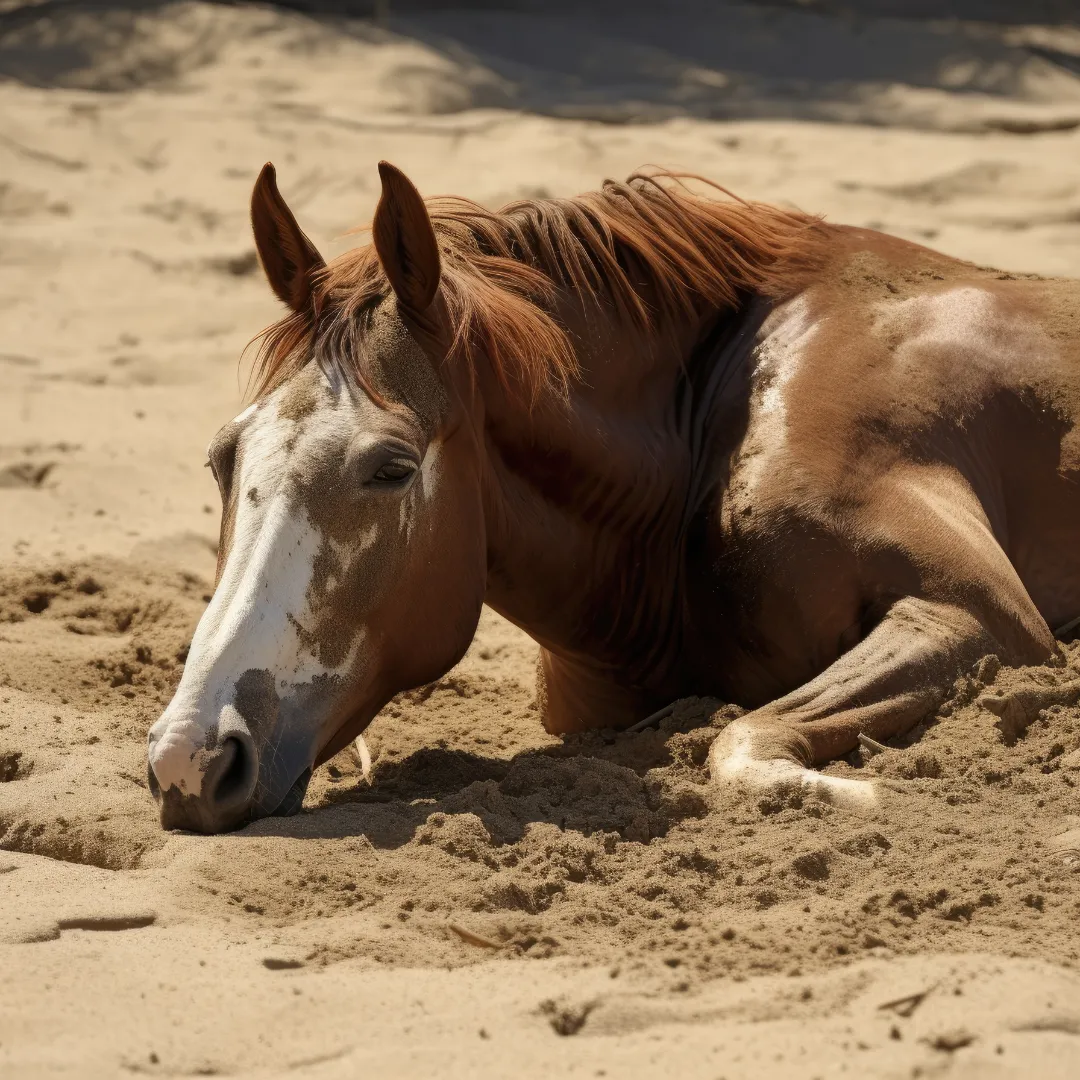
Horses and Seasonal Colic: Prevention, Symptoms, and Emergency Care
As the season changes from summer to fall, horse owners may notice differences in their animals’ appetite, behavior, and overall health. One of the most common and potentially serious issues during this transition is seasonal or barometer colic. Understanding how to prevent colic, recognize the symptoms, and respond in an emergency can make all the difference in protecting your horse’s health.
What Is Colic in Horses?
Colic refers to abdominal pain in horses and can range from mild discomfort to life-threatening intestinal distress. Because the horse’s digestive system is complex and sensitive, even minor disturbances can escalate quickly. Severe colic requires immediate veterinary attention, sometimes within just a few hours to prevent serious complications.
Common Causes of Colic
Several factors can contribute to colic, including:
- Sand ingestion
- Dehydration and not drinking enough water
- Sudden dietary changes
- Reduced movement or stress
- Parasite overload
- Weather fluctuations, especially during spring and fall
- Gas buildup or impaction
Seasonal colic, in particular, often arises from environmental and management changes tied to specific times of year.
Why Colic Is More Common in the Fall
At Full Circle Equine, we typically see an uptick in colic cases during the fall. Some common reasons include:
Temperature Fluctuations
Cooler mornings and nights may discourage horses from drinking enough water, leading to dehydration and sluggish gut motility.
Dietary Changes
As lush summer grass fades and hay becomes the main food source, sudden dietary shifts can upset digestive balance.
Reduced Movement
Limited turnout or colder conditions often mean less exercise, slowing digestion and increasing colic risk.
Hair Coat Growth & Metabolic Changes
As your horse’s coat thickens for winter, energy demands rise. Even minor metabolic stress during this period can impact digestion.
How to Prevent Seasonal Colic
Prevention is far more effective than emergency treatment. Here’s how you can help safeguard your horse during seasonal transitions:
- Maintain a Consistent Feeding Schedule: Introduce any feed or hay changes gradually over 7-10 days.
- Encourage Adequate Hydration: Provide clean, fresh water. Use heated buckets or tank heaters during colder weather to encourage drinking. Flavored electrolytes can also be added to the horse’s water. Some horses love the taste and drink more water.
- Monitor Weather Shifts: Adjust blanketing, turnout, and feeding routines based on temperature changes.
- Promote Regular Movement: Daily exercise and turnout help maintain gut motility and reduce stress.
- Consider Digestive Supplements: Ask our veterinarians about prebiotics, probiotics, or psyllium to support healthy digestion.
- Stay Current with Vet Care: Schedule annual wellness exams, dental checkups, and parasite control programs to reduce colic risks.
Recognizing the Symptoms of Colic
Early detection is critical. Contact us immediately if you notice any of the following signs:
- Reduced manure output
- Stretching as if to urinate
- Rolling or attempting to roll repeatedly
- Looking at or kicking at the belly
- Loss of appetite or disinterest in food
- Restlessness or anxiety
- Abnormal sweating
- Elevated heart or respiration rate
- Pawing or stomping
Even mild signs should be taken seriously. Colic can worsen quickly.
What to Do in a Colic Emergency
If you suspect colic, follow these steps while waiting for veterinary help:
- Call the Vet Immediately: Our team is available to respond promptly to colic emergencies.
- Remove Feed: Do not allow your horse to eat until they’ve been examined.
- Encourage Light Walking: Gentle walking can help reduce rolling and stimulate gut motility.
- Monitor Vital Signs: Record heart rate, respiration, and behavioral changes to help our team assess the situation on arrival.
Emergency Colic Care When You Need It
Our equine team is dedicated to providing comprehensive colic care from preventive management to emergency intervention. With fall in full swing it’s the perfect time to review your horse’s nutrition, hydration, and exercise routines to prevent seasonal colic.